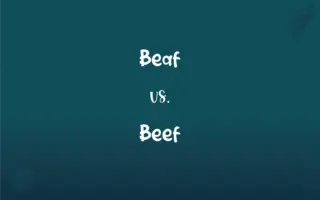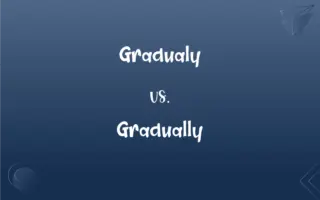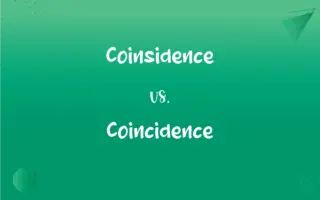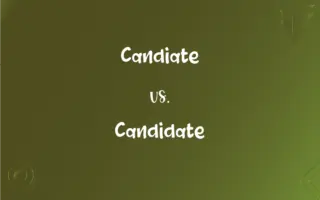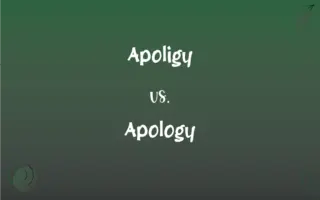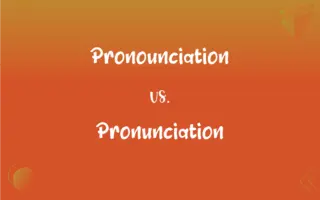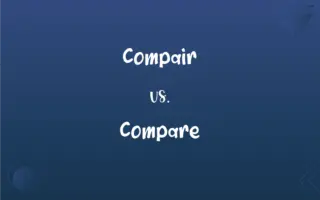Faught vs. Fought: Mastering the Correct Spelling
Edited by Aimie Carlson || By Janet White || Updated on March 8, 2024
"Faught" is incorrect, while "fought" is correct. Fought is a past tense of fight, meaning to have taken part in a physical or verbal conflict.
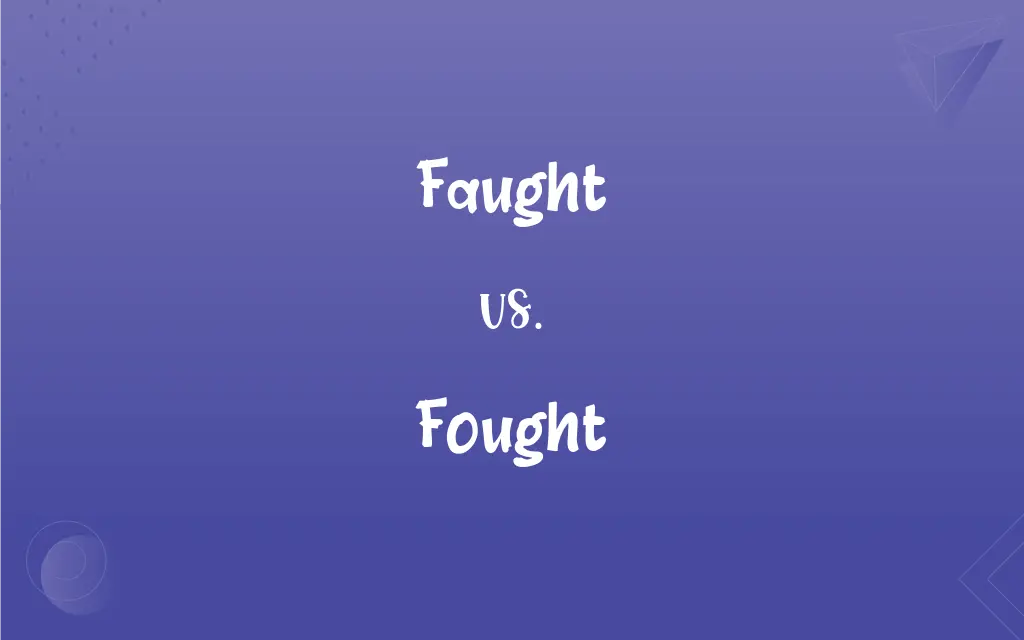
Which is correct: Faught or Fought
How to spell Fought?

Faught is Incorrect

Fought is Correct
ADVERTISEMENT
Key Differences
Recall "fought" and "thought" rhyme, both with "ought."
Use mnemonic i.e. “FOUGHT - FOes UGht to Have Tussled.”
Associate "fought" with "ought," as in a moral obligation, reflecting the seriousness of fighting.
Think of "fought" as related to "fight," where "i" changes to "ou" in the past tense.
Remember "fought" has the same "ough" as "bought," both past tense verbs.
ADVERTISEMENT
Correct usage of Fought
We have faught hard to achieve our goals.
We have fought hard to achieve our goals.
He faught against the illness with all his strength.
He fought against the illness with all his strength.
The two brothers faught over the video game.
The two brothers fought over the video game.
She faught for her rights in court.
She fought for her rights in court.
They faught bravely in the battle.
They fought bravely in the battle.
Fought Definitions
Struggled in a non-physical sense.
She fought against prejudice all her life.
Engaged in combat or struggle.
They fought bravely in the battle.
Used in describing past conflicts or wars.
He fought in World War II.
Resisted or struggled against something.
He fought the urge to procrastinate.
Engaged in a competitive match, especially in boxing.
The boxers fought for the championship title.
Past tense and past participle of fight.
Simple past tense and past participle of fight
Fought Sentences
The soldiers fought valiantly to protect their country.
He fought to keep his business afloat during tough times.
The team fought back from a deficit to win the game.
They fought against injustice in their community.
She fought with her brother over the remote control.
We fought our way through the dense forest.
She fought through her fears to give a great presentation.
He fought to overcome his addiction.
The firefighters fought the blaze for hours.
The couple fought about finances frequently.
The athlete fought through pain to finish the race.
She fought back tears during the emotional ceremony.
The boxer fought for the championship title last night.
Soldiers have fought in wars throughout history.
The hero fought against the villain in the movie.
The lawyer fought for her client's innocence in court.
Environmentalists fought to save the endangered species.
The community fought the construction of the new highway.
They fought hard but ultimately lost the match.
He fought to keep his composure in the stressful situation.
She fought for her right to education.
They fought tooth and nail to protect their home.
Activists have fought for climate change awareness.
They fought for equal rights for all citizens.
The knight fought the dragon in the ancient tale.
Fought Idioms & Phrases
A battle fought in vain
Efforts that are wasted because they achieve nothing.
Trying to convince him was a battle fought in vain.
Fought the good fight
To try very hard to do what is right.
Even though he didn't win, he fought the good fight for justice.
Fought to a standstill
To fight until neither side can gain an advantage.
The two chess masters fought to a standstill, ending the game in a draw.
Fought tooth and nail
To struggle fiercely to achieve something.
They fought tooth and nail to get the project approved.
FAQs
Why is it called fought?
It's called "fought" from the Middle English "foughten," past tense of "fight."
Which vowel is used before fought?
The vowel "o" is used in "fought."
What is the root word of fought?
The root word is "fight."
What is the singular form of fought?
The singular form is "fought."
What is the pronunciation of fought?
Fought is pronounced as /fɔːt/.
Which preposition is used with fought?
Prepositions like "against," "for," and "over" are used with "fought."
Is fought a negative or positive word?
"Fought" is generally neutral; its connotation depends on the context.
What is the plural form of fought?
The plural form is also "fought," as it is a verb form.
Is fought a noun or adjective?
Fought is a verb.
What is the verb form of fought?
"Fought" is the past tense of the verb "fight."
How is fought used in a sentence?
Example: "She fought hard to overcome her challenges."
Which conjunction is used with fought?
Conjunctions like "and" or "but" can be used with "fought."
Which article is used with fought?
Articles are not typically used directly with "fought" as it's a verb.
What part of speech is fought?
"Fought" is a verb (past tense of "fight").
What is the opposite of fought?
The opposite of "fought" could be "surrendered" or "yielded."
Which determiner is used with fought?
Determiners are not typically used with "fought" as it's a verb.
What is the first form of fought?
The first form is "fight."
What is the second form of fought?
The second form is "fought."
Is fought an adverb?
No, "fought" is not an adverb.
Is fought an abstract noun?
No, "fought" is a verb, not a noun.
Is fought a vowel or consonant?
"Fought" is a word, not a vowel or consonant.
Is fought a countable noun?
"Fought" is a verb, so the concept of countability does not apply.
How many syllables are in fought?
There is one syllable in "fought."
What is a stressed syllable in fought?
The entire word "fought" is stressed as it's a single syllable.
What is the third form of fought?
The third form is "fought."
How do we divide fought into syllables?
Fought is a single-syllable word, not divided.
Is fought a collective noun?
No, "fought" is not a collective noun.
Is the fought term a metaphor?
"Fought" can be used metaphorically to describe non-physical struggles.
Is the word fought imperative?
"Fought" is a past tense form, so it is not imperative.
What is another term for fought?
Another term for "fought" is "battled" or "contended."
About Author
Written by
Janet WhiteJanet White has been an esteemed writer and blogger for Difference Wiki. Holding a Master's degree in Science and Medical Journalism from the prestigious Boston University, she has consistently demonstrated her expertise and passion for her field. When she's not immersed in her work, Janet relishes her time exercising, delving into a good book, and cherishing moments with friends and family.
Edited by
Aimie CarlsonAimie Carlson, holding a master's degree in English literature, is a fervent English language enthusiast. She lends her writing talents to Difference Wiki, a prominent website that specializes in comparisons, offering readers insightful analyses that both captivate and inform.
